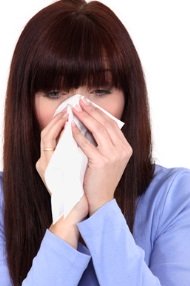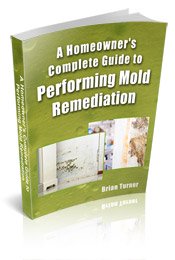Find a Mold Specialist Now
Click or Call, Toll-Free 24/7
Mold Sickness
Having mold in your home can cause a number of health problems, and mold sickness can be avoided by cleaning the mold up as quickly as possible if a problem occurs. Toxic mold related illness must be treated immediately, because there are many long term health complications that can occur if a person continues to be exposed to mold spores that are present in their environment.
The Serious Health Implications of Mold Exposure

Many people don’t realize the serious problems that can result when mold exposure occurs. The mold may seem harmless, and most people consider it to be a small nuisance rather than the serious problem that it actually is. Mold is more than just a minor problem, especially when it is affecting the structure of the home. Even though only a little bit of mold is visible to the naked eye, there are often deeper problems within the walls and ceilings in the area that is affected by the mold.
When mold is present, generally the mold sickness sets in slowly and the person may not realize that they are being poisoned by the toxic environment. There are several types of toxic mold related illness that can occur, and the symptoms may vary from one person to the next. If a person is beginning to experience some of the symptoms that are related to mold, it is a good idea to check their home in order to find the source, and clean up the mold growth immediately.
Common Examples of Toxic Mold Related Illness:
- Allergies: One of the most common forms of mold sickness that occurs is allergies. Most people begin to experience a runny nose, breathing problems, sinusitis, and hay fever. Even though these symptoms may be associated with pollen or other external factors, the symptoms may actually be coming from your own home if there are untreated mold problems.
- Respiratory Illnesses: When mold is present in a home, the inhabitants will be breathing in microscopic mycotoxins that are in the mold spores, which can cause respiratory problems and lung problems. These symptoms may be as minor as a stuffy nose, but when left untreated they may lead to more serious problems such as bleeding in the lungs which can actually lead to death.
- Infections: Toxic mold related illness can present themselves in the form of infections. These infections are caused by pathogens such as fumigatus, aspergillus, and histoplasma.
- Reproductive Problems: One form of mold sickness that most people do not consider is that mold may cause fertility issues in some people. Exposure to mold may cause a disruption in the hormonal balance within the body, which can make it difficult to reproduce or prevent a woman from having a healthy pregnancy.
- Digestive Illnesses: Exposure to mold may result in the body having a hard time removing waste, which can cause digestive issues. Some people experience diarrhea, vomiting, and even internal bleeding as a result of these problems. Additional complications can occur when the liver begins to be diseased because it is overworking to remove the toxins that the person has been exposed to.
- Life Threatening Illnesses: There are various other life threatening illnesses that may occur as a result of mold exposure, such as: fibromyalgia, lupus, sudden infant death syndrome, cancer, and tuberculosis.
As you can see, there are many types of mold sickness that can occur when a person is exposed. It is absolutely essential to get rid of the mold problems immediately if you want to avoid toxic mold related illness. There are several things that can be done in order to completely cleanse your home of the mold problem. It may take a bit of work, but it is worth the effort to protect your health.
We Recommend Contacting a Mold Removal Professional for Assistance if You:
- Have symptoms of mold-related illness.
- Suffer from environmental allergies, asthma, or any sort of breathing difficulty.
- Have any kind of immune system disorder.
- Are pregnant.
In such instances, dealing with the mold removal yourself may be too dangerous since it exposes you to more mold spores. If you’re not sure whether or not it’s safe for you to remove mold yourself, talk to your physician or consult with a mold removal professional. Mold removal professionals usually offer free consultations, during which they will advise you about the health risks and safety precautions you should take if you decide to handle the mold removal yourself. For a list of Mold Removal Professionals in your area, follow the link.
Return From Mold Sickness To Our Symptoms Of Toxic Mold Exposure Page
Black Mold Health Symptoms Home Page





